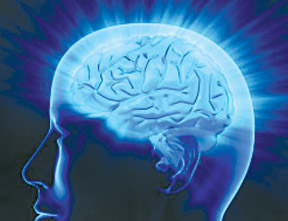Scientists Find Spinal Clue to Detecting Dementia
07 Jan Fox News
 A test to detect those likely to develop Alzheimer's disease before
symptoms appear finally may be on the horizon after scientists found
changes in spinal fluid can predict the disease with 90 percent accuracy
nearly a decade before dementia sets in. A test to detect those likely to develop Alzheimer's disease before
symptoms appear finally may be on the horizon after scientists found
changes in spinal fluid can predict the disease with 90 percent accuracy
nearly a decade before dementia sets in.
A study tracking the progress of a group of patients over an average
of nearly 10 years found those who already had mild thinking
difficulties as well as lowered levels of a beta-amyloid protein in
their cerebro-spinal fluid at the start of the study were overwhelmingly
likely to progress to Alzheimer's by the end. The findings, published
Tuesday in the journal Archives of General Psychiatry, were described by
an Australian expert as "a bit of a breakthrough" for offering the most
promising sign yet that an accurate test might be available in coming
years.
Alzheimer's, the most common form of dementia, accounting for up to
70 percent of cases, is currently diagnosed only after patients become
demented. While the ability to detect the disease earlier would at
present be of limited use, because doctors have few effective
treatments, the study's authors said this was expected to change over
the coming decade. As the treatments were likely to have the greatest
benefit in the earliest stages of the disease, before symptoms became
severe, a test that could identify those likely to be affected would
become highly useful.
As well as lowered levels of a subtype of beta-amyloid that is prone
to aggregating into the sticky plaques seen in the brains of affected
patients, the patients who developed Alzheimer's also showed changes in
two other proteins, called T-tau and P-tau.
The study's authors, from Sweden's Lund University in Malmo, Skane
University Hospital in Malmo and the University of Gothenburg, said the
research suggested about 90 percent of patients who had both mild
cognitive impairment and the tell-tale changes in spinal fluid
composition would develop Alzheimer's within 9.2 years.
"Therefore, these markers can identify individuals at high risk for
future AD [Alzheimer's disease] at least five to 10 years before
conversion to dementia," they wrote. "Hopefully, new therapies that can
retard or even halt progression of the disease will soon be available.
Together with an early and accurate diagnosis, such therapies could be
initiated before neuronal degeneration is too widespread and patients
are already demented." |

